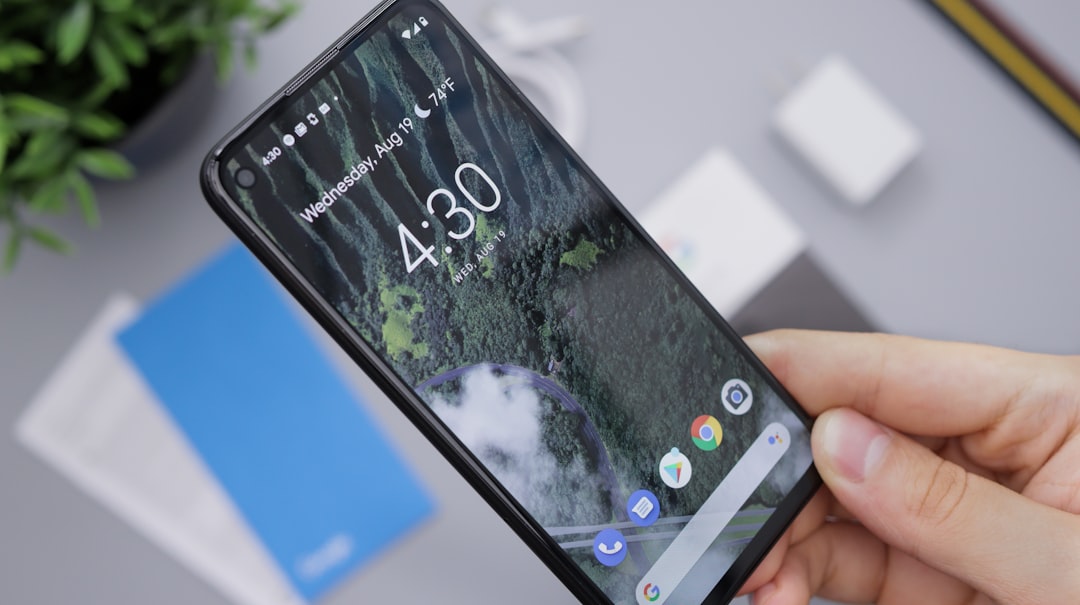Delaware smartphone users face a robocall deluge from law firms, prompting a search for solutions. State's Do Not Call laws offer protection, but automated calls persist. Robocall blocking apps like TrueCall and Hush provide powerful tools to combat this nuisance, enhancing privacy by filtering unwanted calls from law firms and other sources. Customizable settings and regular updates ensure maximum effectiveness against evolving robocall patterns. This trend empowers users to reclaim control over their digital privacy in the face of increasing marketing and fraudulent calls.
Tired of unwanted robocalls disrupting your Delaware daily life? You’re not alone. With the rise of automated calls from telemarketers and scammers, protecting your smartphone from these nuisances is more important than ever. This guide explores Delaware’s do-not-call laws and introduces top-rated blocking apps for Android and iOS. We’ll walk you through effective call filtering techniques and offer privacy protection tips tailored to Delaware residents, empowering you to reclaim control over your communication. Say goodbye to robocalls once and for all!
Understanding Robocalls and Their Impact in Delaware

Robocalls, automated phone calls that deliver pre-recorded messages en masse, have become a ubiquitous and often unwanted nuisance for smartphone users across the country, including those in Delaware. While many robocalls promote legitimate services or products, a significant portion are deemed as spam, targeting individuals with unsolicited marketing messages or even fraudulent schemes. The sheer volume of these calls can be overwhelming, leading to disrupted communication and a general sense of frustration among recipients.
In Delaware, where the Do Not Call laws are stringent, especially regarding law firm solicitations, robocalls have found new avenues to penetrate personal and professional spaces. Despite efforts like the National Do Not Call Registry, these automated calls persist, with many users reporting an increase in spam calls over time. Understanding the impact of robocalls is crucial, as it prompts smartphone users to explore solutions, such as robust call-blocking apps, designed to mitigate this growing problem.
Legal Frameworks for Do Not Call Lists in DE

In Delaware, the Do Not Call list is a powerful tool for smartphone users to combat unwanted robocalls. The state’s Do Not Call law, enforced by the Delaware Division of Consumer Protection, provides residents with a straightforward process to register their phone numbers and block commercial calls. This legislation mirrors federal regulations under the Telephone Consumer Protection Act (TCPA), ensuring a unified front against intrusive marketing calls.
Delaware’s commitment to protecting consumer privacy is evident through these legal frameworks. By participating in the Do Not Call list, residents can rest assured that their rights are upheld, and they’ll be less likely to receive unsolicited calls from law firms or other commercial entities looking to promote their services. This measure not only offers relief to Delaware smartphone users but also fosters a more harmonious and less disruptive communication environment.
Top Robocall Blocking Apps for Android & iOS Users

With unwanted robocalls from law firms in Delaware being a common nuisance, smartphone users now have powerful tools at their fingertips to combat this issue. Robocall blocking apps have emerged as game-changers, offering an effective solution for both Android and iOS devices. These applications are designed to recognize and block automated phone calls, ensuring that users’ peace of mind is maintained.
For Android users, apps like TrueCall and Hush stand out. TrueCall has a robust database of known scammer numbers and allows users to block calls from specific areas or even entire countries. Hush goes a step further by utilizing machine learning to adaptively learn and identify new robocall patterns. On iOS, NoPhoneCall and Call Block are top choices. NoPhoneCall provides a comprehensive call-blocking experience, while Call Block offers additional features like call screening and personalized blocking rules based on caller ID. By employing these apps, Delaware residents can bid farewell to frustrating robocalls from law firms and other unwanted callers.
How to Effectively Use Call Filtering Tools

Robocall blocking apps can significantly enhance your phone experience, especially in Delaware where unwanted calls from law firms and other sources can be prevalent. To get the most out of these tools, start by customizing your filtering settings. Many apps allow you to create specific rules based on numbers or areas, so block all incoming calls from known spammer ranges or even those not listed in your contacts. Additionally, regular updates are crucial; ensure your app is up-to-date to maintain the latest blocking lists, including newly identified robocallers.
Learn to recognize patterns: if certain types of calls keep slipping through, identify the characteristics and adjust your filters accordingly. Some apps offer advanced features like call classification, where they automatically categorize incoming calls as spam or not. This ensures that even unknown or new robocaller numbers are blocked. Remember, the key is to fine-tune these settings over time, ensuring a smoother, more peaceful communication experience for Delaware smartphone users, especially when it comes to avoiding unwelcome Do Not Call law firm visits.
Protecting Your Privacy: A Guide for Delawareans

In Delaware, as in many other states, privacy has become a paramount concern for smartphone users. With the proliferation of robocalls and unwanted marketing calls, especially from law firms, Delawarians are increasingly looking for ways to protect their personal information. Robocall blocking apps offer a promising solution by enabling users to automatically block these nuisance calls, thereby enhancing their digital privacy.
These apps not only save time but also ensure that sensitive personal data remains secure. By using tools designed to identify and block robocalls, Delaware smartphone users can navigate their phones with greater peace of mind, knowing that they have taken proactive measures to shield themselves from unsolicited communication, especially from law firms trying to peddle their services. This shift towards user-driven privacy protections reflects a broader trend in the digital age, where individuals are taking control of their online interactions and data security.






